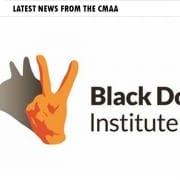CYBER ATTACKS THREATEN ONE IN FOUR AUSTRALIAN CLUBS
Did you know that 25% of Australian SMEs experienced a cyber threat in 2017?
This means that there is a one in four chance that the personal data of your Club members could be exposed by hackers, causing undue harm to your members and ruining your Club’s reputation.
Data such as a member’s name, address, DOB, contact details, credit card and banking details can all be exposed under a cyber attack. Many Clubs are highly susceptible to data breaches as they lack the stringent security systems of larger enterprises. Weak online passwords, unencrypted data and email viruses are all common causes of successful cyber attacks.
With the increasing threat of data breaches in Australia, Club owners and managers need to be aware of the new data breach law that was enacted on 22 February 2018 and upgrade their systems accordingly. However, despite all possible precautions, thousands of cyber attacks are still successful, which is why Cyber Insurance has become essential for Australian Clubs.
How does the Notifiable Data Breaches Bill affect your Club?
Essentially, this new law means that if the personal information of your members is disclosed by a cyber breach, you must notify the Office of the Australian Information Commissioner (OAIC) and the affected members as soon as possible. To abide with this new legislation, however, all Australian Clubs will need to reassess their cyber security and their response to cyber crime.
Common types of cyber attacks in Australia
Online cyber threats are constantly evolving, but there are common entry pathways used by most hackers: ransomware, malware, phishing and fake antivirus alerts.
- Ransomware: Typically installed on Club computers when a website link is clicked or an email attachment is opened, ransomware encrypts your Club’s files, holding them to ransom until you pay an exorbitant fee.
- Malware: Usually installed inadvertently when software or apps are downloaded, malware is designed to gain unauthorised access to your Club’s systems using viruses, Trojans or spyware.
- Phishing and social engineering: Using deception to coerce an individual into providing information that is personal or confidential. Legitimate looking emails can load a virus onto your Club’s computer when an embedded link is clicked or an attached document is opened. Never click on any embedded links that ask you to upload sensitive data, even if it looks legitimate as coming from your colleague or supplier. Instead, contact the person by phone to verify these requests. However, since hackers often include a fraudulent phone number in these emails, always verify the number from a trusted source.
- Fake antivirus alerts: When visiting a website, ignore any popups that tell you that your Club’s computer is infected with a virus and that you should click on their link to clean your computer. They will actually install malware on your computer!
Once your employees are aware of these potential entry points into your system, they can be more vigilant when they are online, reducing the chance of a cyber attack at your Club.
Reducing your cyber risk with the right type of insurance
Malicious cyber attacks against Australian businesses continue to increase in frequency, sophistication and scale, targeting known vulnerabilities in the online security of many SMEs. The Australian Government has estimated that more than 700,000 businesses have already suffered data beaches with at least 60% targeting SMEs.
Cyber Insurance is one strategy that can mitigate a Club’s losses in the case of a cyber attack, however not all policies are equal. The type of policy needed by your Club will depend on your cyber risk and can include any combination of the following seven areas.
- Privacy breaches, fines, investigations, notifications and loss mitigation.
- Damage to your IT systems and data, as well as cover for IT forensic or security consultations.
- Loss of profits due to a cyber attack.
- Liability due to loss of data caused by a cyber attack.
- Ransomware payments.
- Crisis management.
- Brand protection.
Don’t let your Club be amongst the 60% of Australian SMEs without Cyber Insurance who have already closed their doors due to the devastating results of an unrecoverable malicious cyber attack.
Talk to our Director, Dwayne Haydon, or any of our Principal Advisers about Cyber Insurance for your Club on: 02 9011 6633 (NSW), 03 8615 0607 (VIC), 08 8463 0640 (SA) or send us an email today.
Read the full article at http://www.pacegroup.com.au/news.html










